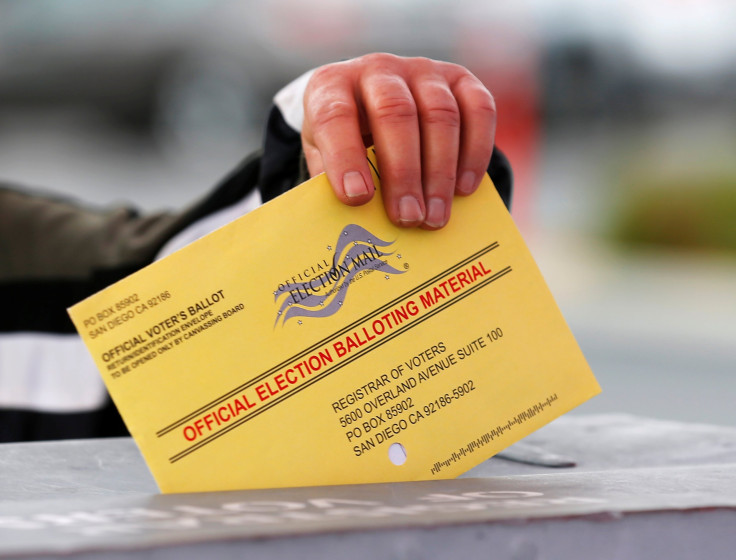California Propositions: Are Democrats Poised For Big Wins Beyond The Presidential Election And US Senate?

California Democrats may feel an embarrassment of riches in the upcoming Nov. 8 election. Not only is presidential nominee Hillary Clinton expected to win the state's 55 electoral votes in a landslide and has a very good shot of winning the general election, the state is basically locked to maintain its U.S. Senate seat vacated by Barbara Boxer.
In the first opening for a Senate seat since 1992, the Republicans failed to produce a serious candidate to challenge the Democrats. Two Democrats, Attorney General Kamala Harris and Orange County Congresswoman Loretta Sanchez, are vying for Boxer's seat, with Harris the overwhelming favorite. Harris has such a sizable lead that she has spent a good portion of her time campaigning on behalf of other Democrats in the state. A recent poll from the Public Policy Institute of California shows 18 percent said they will not vote for a U.S. Senate candidate, while 20 percent are undecided.
Donald Trump, meanwhile, is in danger of receiving the lowest percentage of California votes for a Republican presidential candidate in recent memory. One recent poll had Trump at 28 percent, a sharp decline from former GOP nominee Mitt Romney, who received 37.1 percent.
While the left-leaning state's support for Democrats is nothing new, there are ramifications that extended beyond who goes to Washington. According to Dan Schnur, director of USC's Jesse M. Unruh Institute of Politics, California Republicans face big obstacles aside from the top of the ballot.
"The absence of statewide elected Republicans has made fundraising for ballot initiatives much more difficult," Schnur told International Business Times in a phone interview. "If you look at Proposition 52, 57 and 66 and others that might normally encourage conservative support or opposition, the funding simply hasn’t existed to make the measures more competitive."
There are 17 ballot measures, the most since the 2000 Election, and because California is the most populated state it can perhaps influence Capitol Hill lawmakers.
The propositions include legalization of marijuana (Prop 64), repealing the death penalty (Prop 62) or speeding up the death penalty (Prop 66), extending the tax rates on the rich (Prop 55), and banning the sale of large-capacity ammunition (Prop 63).
There is also a cigarette tax of $2 per pack (Prop 56), a ban on single-use plastic bags (Prop 67), and overhauling prison parole (Prop 57).
If the propositions don't pass there is still Gov. Jerry Brown, a liberal Democrat, and a legislature that has a commanding presence. In the State Senate, the Democrats are one seat short of a super-majority, while the Assembly is two seats shy of a super-majority, adding to the many woes of California Republicans. Schnur, who once worked as the spokesman for former Republican Governor Pete Wilson, told the San Jose Mercury News that the challenge for legislative Republicans "is now looking like an almost insurmountable obstacle."
Apathy from California Republican voters may mean widespread changes for a state with a population of nearly 40 million and 19.4 million registered voters. Registered Democrats outnumber Republicans 44.9 percent to 26 percent. Because of the current political climate, Schnur believes there is a better chance Republicans will have a lower turnout on Tuesday than in past elections, which could mean one-sided victories for liberal-leaning propositions and state legislators.
"In the absence of a competitive presidential race in California and in the absence of a Republican candidate for U.S. Senate at all, the incentive for turnout down-ticket become much less," Schnur said.
© Copyright IBTimes 2025. All rights reserved.






















